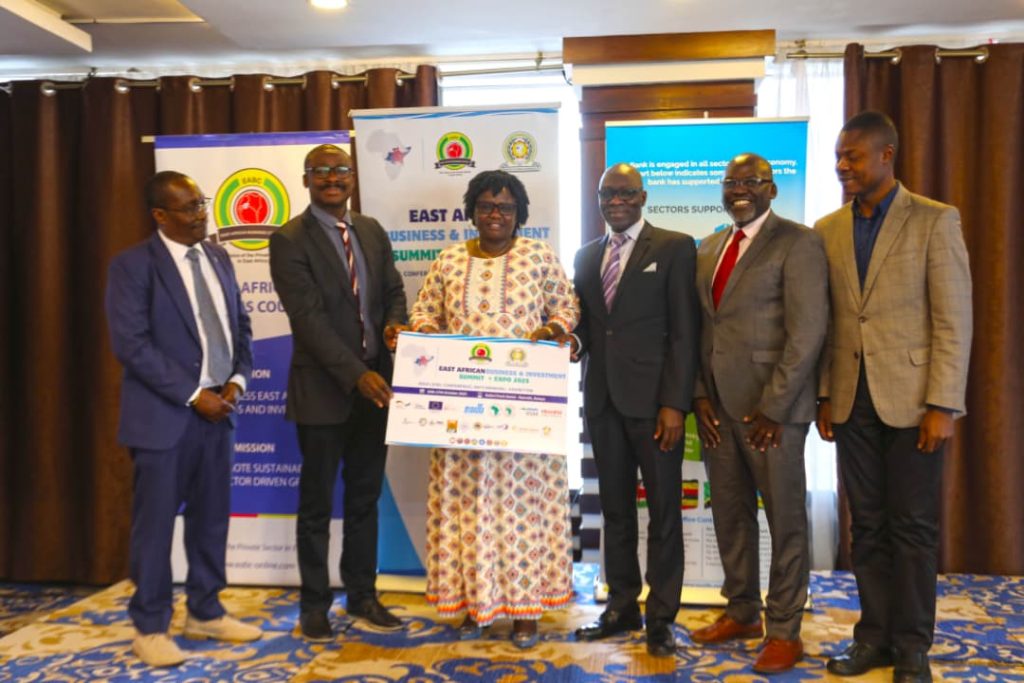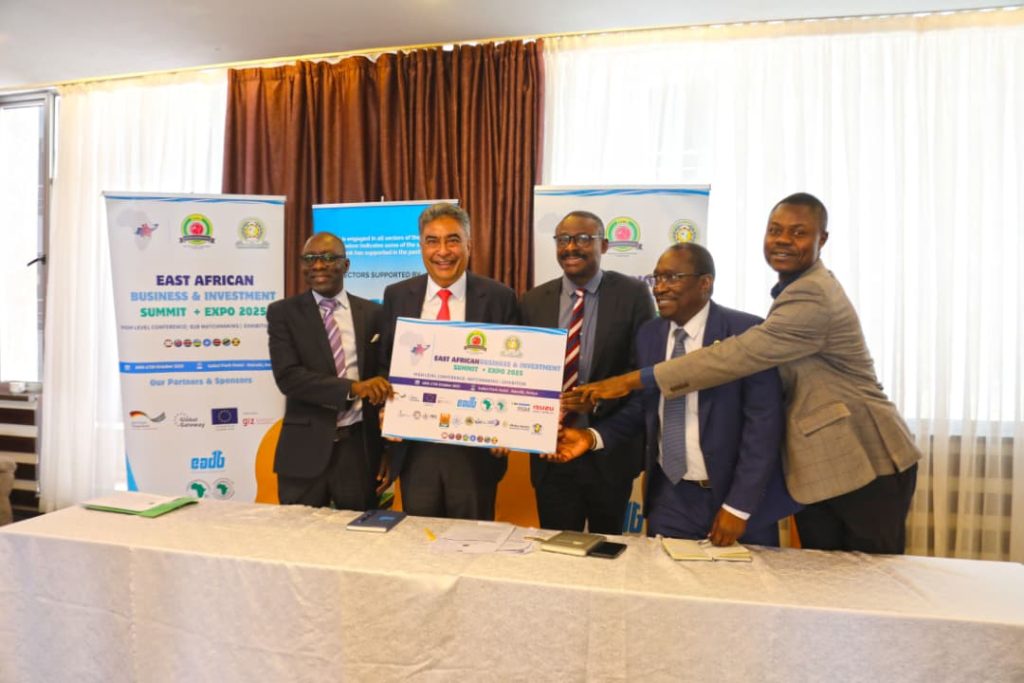
Hon. Beatrice Askul Moe Unveils the East African Business and Investment Summit & Expo 2025 slated to be held on 16th -17th October in Nairobi, Kenya.
Nairobi, Kenya Thursday 14th August 2025 —Hon. Beatrice Askul Moe the Cabinet Secretary for the Ministry of EAC, ASALs & Regional Development Kenya and Chairperson of EAC Council of Ministers officiated the EABC CEO–EAC Secretariat Consultative Meeting in Kenya and unveiled the East African Business and Investment Summit & Expo slated on 16th -17th October 2025 at Safari Park Hotel in Nairobi, Kenya.

In her remarks, the Chief Guest, Hon. Beatrice Askul Moe, stated:
“The EAC’s 300 million citizens present a vast market, and adopting digital solutions within the Single Customs Territory will further facilitate trade.” She emphasized that the Government of the Republic of Kenya is committed to implementing EAC commitments for a more business-friendly East Africa, with the private sector as a key driver of regional integration.
Hon. Beatrice Moe called for product differentiation and unique innovation to boost intra-EAC trade and competitiveness, and urged EAC Partner States to remain committed to agreed EAC obligations. She further emphasized that financial year budgets and national laws should align with EAC commitments to drive meaningful integration and shared prosperity.

Mr. Jas Bedi, EABC Vice Chairperson & Chairperson of Kenya Private Sector Alliance (KEPSA), said: “We must think differently as East Africa. We need to act as ‘Team East Africa.’ East Africans must adapt faster than the rest of the world and seize opportunities collectively. Global dynamics are shifting — in the next 45 days, AGOA will expire, and the world is moving from multilateral agreements to transactional bilateral agreements. We must know our competitors as East Africa and negotiate for better tariff terms.”
Mr. Lamech Wesonga, Economic and Policy Advisor on AfCFTA for EAC-GIZ reiterated GIZ’s commitment to partnering with government and the private sector in strengthening public–private dialogue, which is critical for regional and continental integration and trade agreements with third parties to uplift the livelihoods of East African citizens.
Mr. Charles Omusana, EAC Principal Economist (Investment & Private Sector Promotion), stated that the EAC is committed to engaging in dialogue with the private sector under the EAC–EABC Technical Working Group to address trade bottlenecks and inform the agenda, discussions, and policy decisions aimed at improving the business climate at regional level.
Mr. Adrian Raphael Njau, Acting Executive Director of EABC, stated: “For the region to attain intra-EAC trade of 40%, the private sector urges EAC Partner States to fully implement the Single Customs Territory (SCT) framework, expedite tax harmonization, remove discriminatory fiscal measures on EAC-originating goods, treat them as domestic transfers rather than imports or exports, and fast-track the legal process of amending the EAC NTB Act and its regulations.”
Mr. Tobias Alando, CEO of the Kenya Association of Manufacturers, called for the uniform application of the Common External Tariff (CET) by all EAC Partner States.
Speaking during the press conference, Mr. Ben Raminya, East African Development Bank (EADB) Country Manager for Kenya, said: “EADB is pleased to partner in the upcoming East African Business and Investment Summit & Expo 2025 to support the private sector in driving sustainable socio-economic development in the region. This support aligns with the Bank’s mission to promote economic development and serve as a catalyst for stronger trade and investment relations.”
The two-day meeting has convened 55 representatives from Kenya’s public and private sectors to discuss solutions to barriers to trade and investment, with the aim of boosting the uptake of regional integration opportunities. Kenya business association leaders from agriculture & horticulture, manufacturing, and services—including tourism, financial services, and logistics will present on sectoral challenges and opportunities in cross border trade and investment.